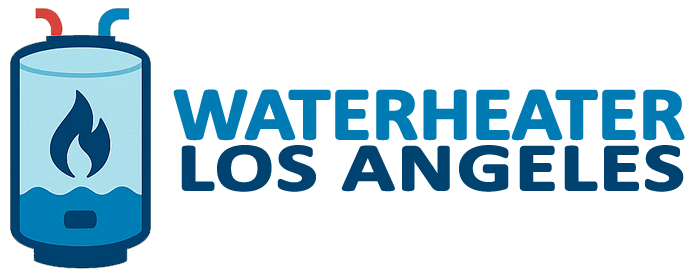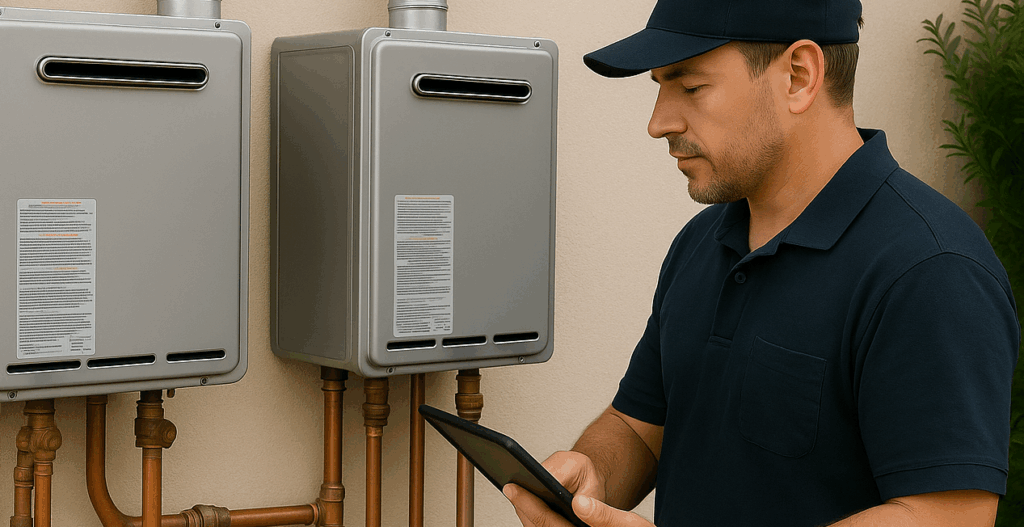Hot water is a modern comfort we often take for granted until something goes wrong. Whether it’s a cold shower on a chilly morning or an unexpected spike in your energy bills, water heater troubles can quickly become a major headache. The good news? With a little attention and some expert guidance, you can keep your water heater running efficiently for years to come. Here’s everything you need to know to get the most out of your water heater while keeping energy costs and breakdowns at bay.
Know Your Water Heater Type
First, understand what kind of water heater you have. Is it a traditional tank (storage) model or a tankless (on-demand) unit? Gas, electric, or even hybrid heat pump? Each system has its own maintenance requirements and potential efficiency upgrades. Check your owner’s manual for specific instructions, and don’t hesitate to call in a professional if you’re unsure.
Lower the Thermostat
Most water heaters are set at 140°F (60°C) by default, but for many households, 120°F (49°C) is plenty hot for showers, laundry, and dishwashing. Lowering the temperature reduces the risk of scalding, slows mineral buildup and corrosion in your tank, and can save you up to 5% in energy costs for every 10 degrees you lower the setting. To adjust the temperature, follow your unit’s instructions usually, it’s a simple dial.
Flush the Tank Regularly
If you have a traditional tank-style water heater, sediment buildup is one of the biggest threats to efficiency. Minerals from hard water settle at the bottom of the tank, forming a crust that insulates the water from the heating element. This makes your heater work harder, raising energy use and shortening its lifespan. Experts recommend flushing out your tank at least once a year:
- Turn off the power/gas supply.
- Connect a hose to the drain valve at the bottom of the tank.
- Drain several gallons of water into a bucket or outside until it runs clear.
- Close the valve, remove the hose, and restore power.
If you hear rumbling or popping sounds from your tank, it’s likely overdue for a flush.
Insulate the Tank and Pipes
Heat loss can occur as water sits in your tank and as it travels through your pipes. Insulating both is a cost-effective way to improve efficiency. For older water heaters (especially those in cold garages or basements), wrap the tank with a water heater blanket – these are inexpensive and easy to install. Be careful not to block vents or thermostat controls.
Likewise, insulate the first six feet of the hot and cold water pipes connected to your heater. This not only conserves heat but also helps prevent condensation and freezing in winter.
Check the Anode Rod
Inside your tank, a metal “sacrificial anode rod” attracts minerals and corrosion that would otherwise attack the tank walls. Over time, this rod dissolves and needs to be replaced—usually every 3-5 years. If it’s worn down to less than half an inch thick, or if it’s coated in calcium, it’s time for a new one. Replacing the anode rod can add years to your tank’s lifespan and prevent expensive leaks.
Test the Pressure Relief Valve
Every water heater has a temperature and pressure relief (TPR) valve that opens if pressure gets too high, preventing dangerous explosions. To test it:
- Place a bucket under the discharge pipe.
- Lift the valve’s lever and let some water out – be careful, it’s hot!
- If water keeps running or the valve leaks after you let go, it needs to be replaced.
This is a quick check, but it’s crucial for safety and efficiency.
Fix Leaks and Drips Immediately
Even a small leak can turn into a big problem. Water pooling around your tank, dripping from pipes, or a damp relief valve are all signs that something’s wrong. Leaks waste energy and water, and can lead to structural damage or mold growth. Don’t ignore them – call a plumber as soon as you notice a problem.
Install a Timer or Use Vacation Mode
If you have an electric water heater and your schedule is predictable, installing a timer can save energy by only running the unit when you actually need hot water. Many new models come with a “vacation” mode or an “eco” setting, which lowers the temperature when you’re away. For gas models, simply turn the thermostat down to its lowest setting if you’ll be gone for several days.
Consider Water Softeners if You Have Hard Water
Hard water – water high in calcium and magnesium – accelerates sediment buildup and reduces efficiency. Installing a water softener can protect your water heater, appliances, and plumbing. It’s an investment, but over time it pays off through longer equipment life and lower maintenance costs.
Schedule Professional Maintenance Annually
While DIY maintenance goes a long way, there’s no substitute for a professional tune-up. A licensed plumber can check all the electrical/gas components, flush the tank thoroughly, inspect and replace the anode rod, check the venting, and catch small issues before they become expensive repairs. An annual service call is usually affordable, and some companies offer maintenance plans with additional perks.
Upgrade to a More Efficient Model
If your water heater is over 10 years old, even the best maintenance can’t make it as efficient as modern units. New tankless heaters, hybrid heat pump models, and high-efficiency tank units use far less energy and offer greater reliability. While the upfront cost is higher, rebates and lower energy bills can offset the investment over time. If you find yourself calling for repairs frequently or running out of hot water, it might be time to upgrade.
Use Less Hot Water
It sounds obvious, but using less hot water will extend the life of your heater and lower your bills. Simple changes like taking shorter showers, washing clothes in cold water, and fixing drippy faucets can make a big difference. Consider installing low-flow showerheads and faucet aerators to reduce consumption without sacrificing comfort.
Keeping your water heater running efficiently doesn’t require special skills – just a little regular attention and smart habits. By following these expert tips, you’ll enjoy reliable hot water, lower energy bills, and peace of mind knowing your system is in top shape. If you ever have doubts or spot warning signs, don’t hesitate to call a trusted plumber. With proper care, your water heater can deliver years of safe, efficient service so you can get back to enjoying those long, relaxing showers.

